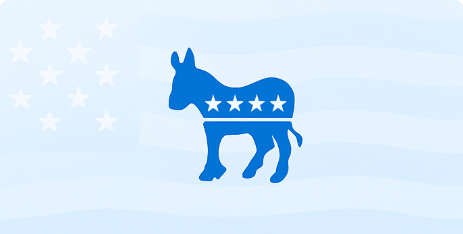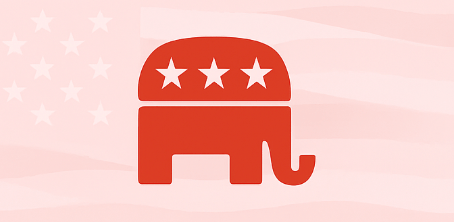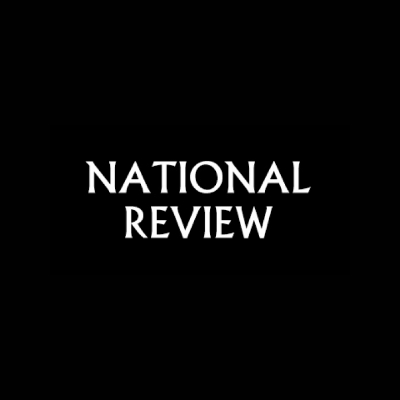How News Sources Portray Clinton Impeachment Policies
This chart shows how major news sources across the ideological spectrum frame clinton impeachment policies, from left to right-leaning perspectives.
Bias in the media profoundly influences how the public understands major political events, shaping both immediate reactions and long-term historical interpretation. The Clinton impeachment stands as one of the most polarizing incidents in modern American history—a defining case of how partisanship intersects with presidential accountability. This event illuminated how competing political narratives can transform a constitutional process into a national moral debate.
President Bill Clinton faced impeachment charges for perjury and obstruction of justice stemming from his relationship with Monica Lewinsky. Each political party framed the same evidence through different moral and institutional perspectives, exposing a widening ideological divide over what constitutes ethical governance and constitutional violation.
Clinton impeachment refers to the impeachment trial of former President Bill Clinton, who was charged with lying under oath and obstructing justice. Clinton was acquitted and remained in office.
The impeachment became a referendum on integrity and the scope of presidential power. Democrats portrayed the proceedings as partisan overreach; Republicans defended them as necessary to protect the rule of law. The Clinton impeachment’s significance lies not in the verdict itself, but in how it crystallized hyperpartisan division in U.S. politics. This pattern continues to define public debates about executive misconduct today.
Republican lawmakers who voted for the Clinton impeachment argued that even though it only concerned his private life, a President who commits perjury and obstructs justice is subverting the rule of law, and that subversion becomes a “high crime.” On perjury, 45 Republican senators voted to convict, while 45 Democrats and 10 Republicans voted for acquittal. On obstruction of justice, 50 Republicans voted for conviction, while 45 Democrats and 5 Republicans voted for acquittal.
Understanding the policy stance on Clinton’s impeachment requires analyzing not only the trial itself but also how each party’s interpretation shaped public perception of legitimacy, morality, and constitutional duty. The case revealed that impeachment is as much a political narrative as it is a legal process, driven by selective framing in both mainstream and partisan media.
A Brief History of Clinton Impeachment
The impeachment of Bill Clinton originated in 1998 when Independent Counsel Kenneth Starr expanded his investigation from Whitewater real estate dealings to allegations that Clinton lied under oath about his affair with Monica Lewinsky. The House approved two articles of impeachment—perjury and obstruction of justice—under Article II, Section 4 of the Constitution. In February 1999, the Senate acquitted Clinton on both counts, concluding one of the most contentious legal battles in U.S. presidential history.
The Clinton impeachment outcomes marked a turning point in the relationship between morality, media, and law. Republicans asserted that impeachment upheld constitutional integrity, while Democrats decried it as a politically motivated attempt to overturn electoral will. Despite the scandal, Clinton’s approval rating reached 70%. This suggests that the public differentiated private misconduct from public performance.
The event reshaped how Americans define leadership and accountability. Its aftermath included bipartisan criticism of the Independent Counsel Act, which expired soon after due to concerns about prosecutorial overreach. The importance of Clinton’s impeachment thus extends beyond legal precedent—it exposed the limits of moral judgment in democratic governance and redefined how political elites and voters view presidential legitimacy.
Democrats’ Stances on Clinton Impeachment
Democrats perceive the impeachment of Clinton as an abuse of congressional power for partisan ends. While recognizing Clinton’s moral failings, they argued that impeachment should be reserved for apparent abuses of office, not private misconduct. Most Democratic lawmakers opposed conviction by framing their stance around constitutional restraint and institutional preservation.
A few dissenting Democrats, such as Paul McHale and Gene Taylor, voted for certain articles of impeachment on principle. They emphasized that the rule of law applies equality to all. Their position showed internal diversity within the party and underscored the belief that accountability must coexist with due process.
Two decades later, those same Democrats invoked 1998 as a moral guidepost, urging Republicans during the President Donald Trump impeachment inquiries to “obey the law” and “vote with an eye toward history.” The Democratic Party’s broader position stresses fact-based evidence, transparent hearings, and equal standards across administrations—a philosophy aligning with its long-term view of Congress as the protector of democratic institutions.
Across contexts, Democrats have upheld impeachment as a constitutional mechanism of last resort, not a political weapon. They argue that legitimacy arises from transparency and procedural fairness, insisting that every impeachment inquiry—whether against Democrats or Republicans—must meet constitutional thresholds rather than political convenience.
Politicians Who Oppose Clinton Impeachment Rights

Republicans’ Stances on Clinton Impeachment
For Republicans, the Clinton impeachment was a constitutional necessity to preserve the moral and legal foundation of the presidency. Lawmakers argued that Clinton’s perjury and obstruction of justice violated his oath of office and eroded public trust. Figures such as former Secretary of Education William J. Bennett insisted that tolerating such conduct would “weaken civic morality” and diminish respect for the law.
Republican leaders emphasized that the issue transcended Clinton’s private life—it was about honesty before the law. The Republican Party maintained that no one, not even the president, stands above constitutional accountability. For many conservatives, impeachment was a test of integrity rather than political calculation.
However, the Republican-led impeachment revealed the political risks of moral absolutism. Despite extensive media coverage and legal argumentation, public support for impeachment remained below 35%. Many Americans saw the process as partisan overreach, deepening distrust toward Congress. Polling from Pew Research showed that while voters condemned Clinton’s actions, they overwhelmingly opposed removing him from office—indicating that moral outrage did not translate into political consensus.
The Clinton impeachment effect was paradoxical: while reinforcing the GOP’s image as defenders of law and order, it also alienated moderates who viewed the proceedings as excessive. This event remained a cornerstone of Republican discourse on presidential accountability, shaping later approaches to impeachment against Democratic presidents.
Politicians Who Support Clinton Impeachment Rights

The Clinton Impeachment and Its Fallout
The Clinton impeachment history demonstrates how moral and institutional crises can reshape party identities. After the trial, Democrats consolidated support among voters who prioritized policy results over personal ethics, while Republicans deepened their identification with traditional moral values.
The impact of Clinton’s impeachment also redefined the public’s relationship with the media. Coverage of the scandal blurred the lines between journalism and sensationalism, intensifying public cynicism toward both politics and the press. The saturation of televised hearings and commentary transformed impeachment from a legal proceeding into a media spectacle by reinforcing partisan division that persists in contemporary coverage of political scandals.
In policy terms, the impeachment indirectly influenced executive-legislative relations. Presidents since Clinton have exercised greater caution in testimony and document disclosures, aware that political scandals now unfold in real time through 24-hour news and social media. This legacy underscores the broader importance of Clinton’s impeachment as a warning against the weaponization of moral judgment in political conflict.
What the Future Holds
The Clinton impeachment significance continues to shape how Americans interpret presidential accountability and partisanship. It established a template for subsequent impeachments, including those of President Donald Trump and future cases, where questions of legality intertwine with media narratives and public trust. The event showed that a president can maintain public approval amid scandals when voters perceive impeachment as politically motivated.
In today’s fragmented information environment, the challenges have intensified. Social media amplifies partisan framing, while public skepticism toward news sources complicates efforts to establish shared facts. The legitimacy of impeachment now depends as much on informational credibility as on legal evidence.
Looking forward, the lesson from 1998 endures: impeachment succeeds not when it removes a president, but when it reaffirms the rule of law and constitutional norms. Both parties must learn to view impeachment not as a partisan tool but as a safeguard of democratic accountability. The endurance of American democracy will hinge on whether political leaders can transcend short-term advantage and restore institutional trust damaged since the Clinton era.
To explore how each political party views other key policy topics, visit Biasly’s full list of Political Party Policy Stances.
To unlock more data-driven insights into media bias, explore political leanings with research-backed tools, and customize your news feed around what matters most to you, sign up for a Biasly Premium News Membership.











































